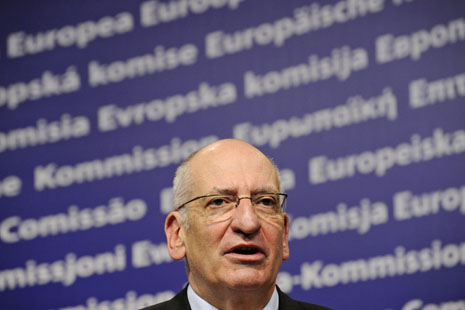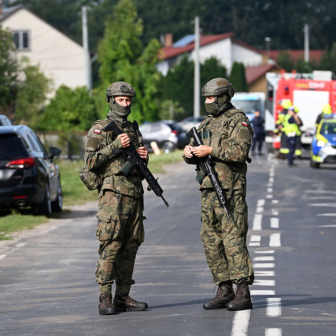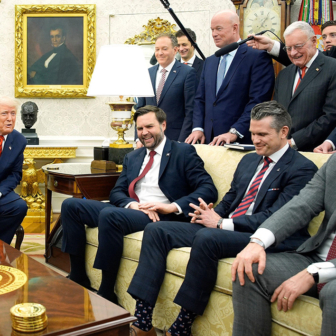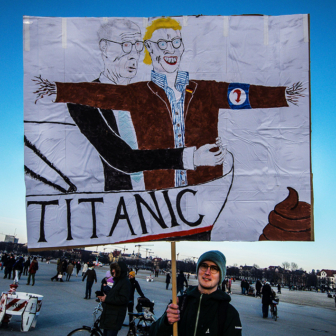EVEN FOR THE SWISS it was a remarkable coincidence. On the day a parliamentary report accused the Swiss cabinet of illegally destroying evidence of possible nuclear espionage by a family of Swiss engineers, one of the suspects told a national TV program that information he passed to US spies forced Libya to abandon its nuclear weapons program.
The report and the TV program (on 22 January) were the latest developments in the ongoing Affaire Tinner, a long-running saga involving allegations of illegal nuclear proliferation and smuggling, the destruction of sensitive documents, secret Swiss links to the US Central Intelligence Agency, claims of constitutional vandalism, and abuses of human rights and due legal process.
These are serious issues for the Swiss, who pride themselves on their independence, democracy and high standards of international probity and neutrality. Depending on who you talk to, the Swiss government has either caved in disgracefully to US pressure or has acted with high moral purpose to prevent possible future nuclear weapons technology transfers.
On the available information it is impossible to say who is right. But in the depths of a bitterly cold Swiss winter the Affaire Tinner is preoccupying the Swiss even more than next Sunday’s controversial referendum on whether to continue the country’s bilateral agreement with the European Union to allow the free movement of people across its borders and to extend the agreement to Bulgaria and Romania.
To understand the affair it is necessary to enter into what the former CIA officer, James Angleton, once called the “wilderness of mirrors” that makes up the landscape of espionage and counter-espionage, and to consider the compromises that governments (especially the governments of small countries) feel obliged to make in the interests of their national security and relations with great powers.
The origins of the affair appear to go back to the mid-1970s when Friedrich Tinner, a Swiss inventor and mechanical engineer, formed a relationship with Dr A. Q. Khan, the now notorious Pakistani nuclear bomb pioneer and proliferator of nuclear weapons technology. Mr Tinner, an expert in vacuum technology, helped Dr Khan to develop atomic centrifuges which enriched uranium for Pakistan’s nuclear weapons. According to published reports, Mr Tinner’s sons, Urs and Marco, became involved in the relationship with Dr Khan in the late 1990s and the three of them helped to supply Iran and Libya with centrifuges and other weapons parts and designs.
In 2003, in the best traditions of counter-espionage drama, reports suggest that the CIA “turned” Urs and Marco Tinner. Over several years the CIA reportedly paid the Tinners millions of dollars for information on Libyan and Iranian nuclear weapons programs and on Dr Khan’s nuclear proliferation activities.
In the 22 January TV program Urs Tinner confirmed that he had also sabotaged uranium enrichment centrifuges so that they would malfunction when used. His purpose, apparently, was to suggest that he had in fact sought to stop or delay nuclear programs in Libya and Iran. Mr Tinner said that agents acting on his information seized centrifuges bound for Libya at a shipyard in Italy. This forced the Libyans to admit that they had a clandestine nuclear program which they subsequently ended.
But a New York Times investigation last year suggested that the Tinners might have been playing a double game even when they were cooperating with the CIA. An unnamed European intelligence official said that Urs Tinner persuaded his father and brother to continue supplying Dr Khan with equipment and to help run a centrifuge plant in Malaysia even while supplying information to the CIA.
According to the New York Times the secret lives of the Tinners started to unravel in 2004 when a Malaysian police report named them as members of Dr Khan’s network. Swiss authorities arrested them in 2004 on suspicion of smuggling nuclear secrets and seized computer files and other material documenting their activities.
Immediately the US put pressure on Switzerland to hand over the Tinners’ files, presumably to hide evidence of their relationship with the CIA. Former justice minister Christoph Blocher said on the TV program that he visited Washington in 2007 to discuss the issue with the Americans. He refused to hand over the files.
But in May last year the Swiss president Pascal Couchepin confirmed that the Swiss government had destroyed the files. Refusing to answer questions he said the files had been destroyed so that they would not fall into the hands of terrorists. Couchepin said they included plans for nuclear arms and technologies including a Pakistani bomb design. Washington was reportedly delighted that the files had been destroyed.
But the Swiss examining magistrate in charge of the case against the Tinners, Andreas Muller, was ropeable. He said he had no warning of the planned destruction and was trying to determine what now remained of the case against the Tinners in the absence of the files. The 22 January parliamentary report also strongly criticised the decision to destroy the documents, describing it as an over-reaction because there was no threat to Swiss security. The report said that there was now no possibility of determining the guilt or innocence of the Tinners on nuclear smuggling charges.
Across the Swiss political spectrum politicians have been highly critical of the Cabinet decision, saying that it had compromised Swiss neutrality and represented the unwarranted destruction of evidence in an ongoing legal process. But Friedrich Tinner was released from gaol in 2006 and Urs Tinner was released in December last last year. Neither was charged with a crime. Although Marco Tinner was arrested last month after posting bail of SFr100,000, it remains unclear whether they will face further proceedings. The trio seems set to join the growing list of associates of Dr Khan who have avoided prosecution for proliferating nuclear technology and materials.
For the Swiss the Affaire Tinner has been a reminder that notwithstanding their traditions of neutrality and direct democracy they have a tough and powerful executive government which can take far-reaching actions and can be extremely difficult to hold to account. •




